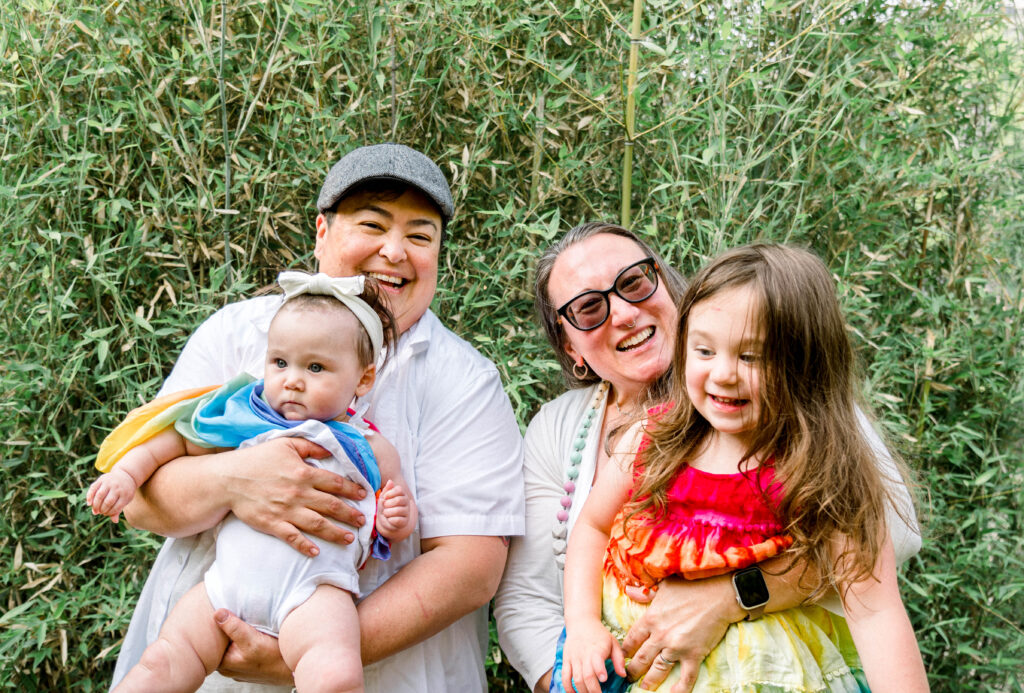In this edition of the Queer Family Archives, I’ll be sharing the story of Aiden (they/them), Minda (they/them), Inara (she/her), & Soraya (she/her). These four are always making each other laugh. Below is the transcript of what they shared with me about their story during a playdate at Maggie Daley Park.
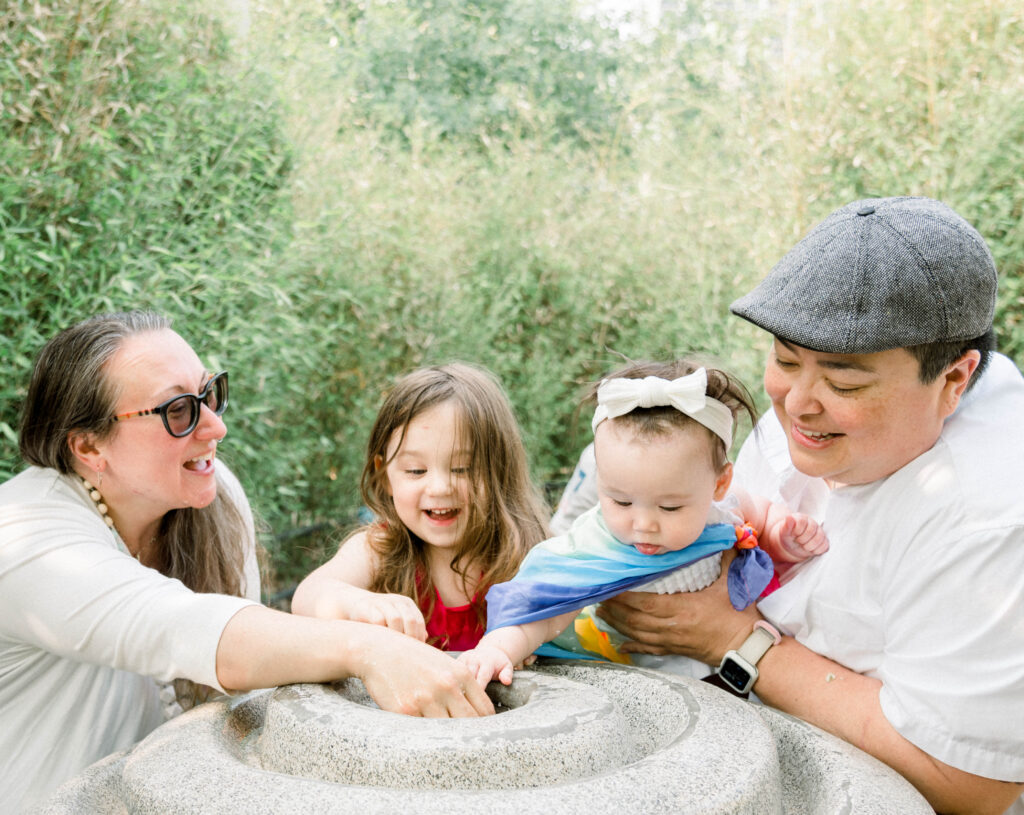
Tell me about your family.
Aiden: We’re totally East meets West. I’m originally from New York, and I moved here to Chicago in 2015 to work at Howard Brown. I’m a nurse midwife and I really wanted to work in queer communities. So I moved here to Chicago and we met serendipitously – although we have all the same friends, we’d never met. But I was visiting California, and we met. It was like it was magic. It was like, who are you and where have you been all my life? We just hit it off. It was meant to be.
Minda: I might have Facebook stalked them after the weekend just to make sure that we kept in touch, just saying.
“It was like magic.“
Aiden: And I was appreciative of that because the whole entire time I was there, I was always noticing if they were present or not. They were super shiny and everything I was looking for. And it took me going to California to like meet them! And here we are, in the middle.
Minda: I’ve never lived anywhere else besides California, and I didn’t move here until I was pretty much 40. So oftentimes people ask me, “why did you leave?” And I say, “marriage and a baby!”
Aiden: And now we have this incredible family with two amazing little ones.
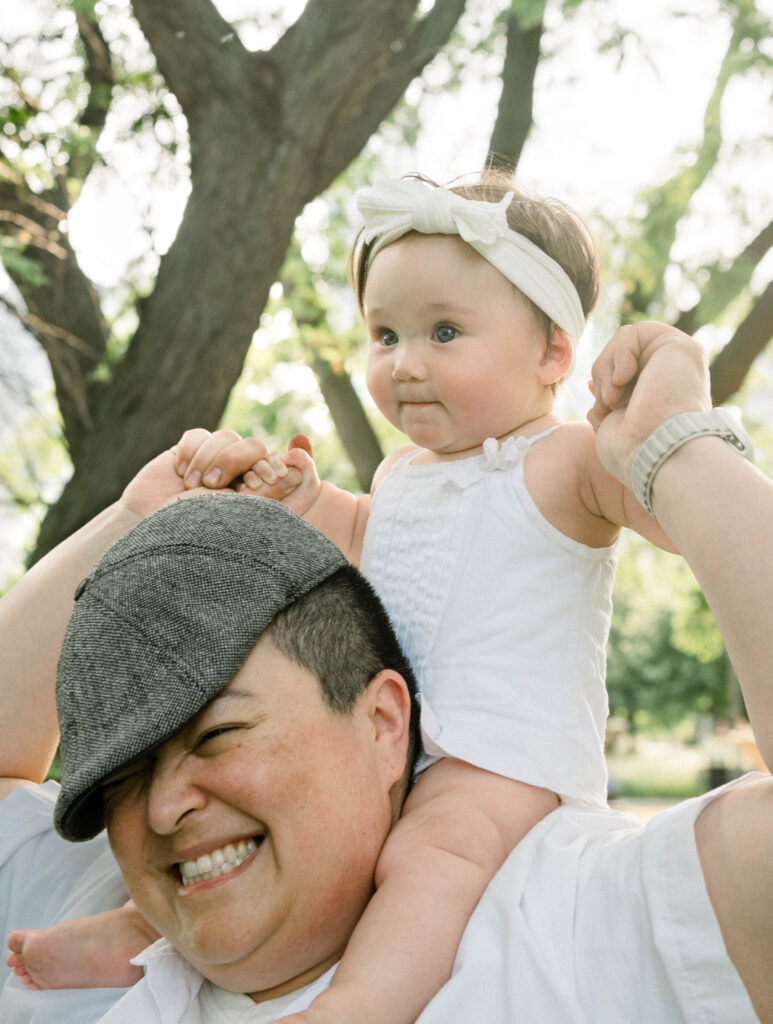
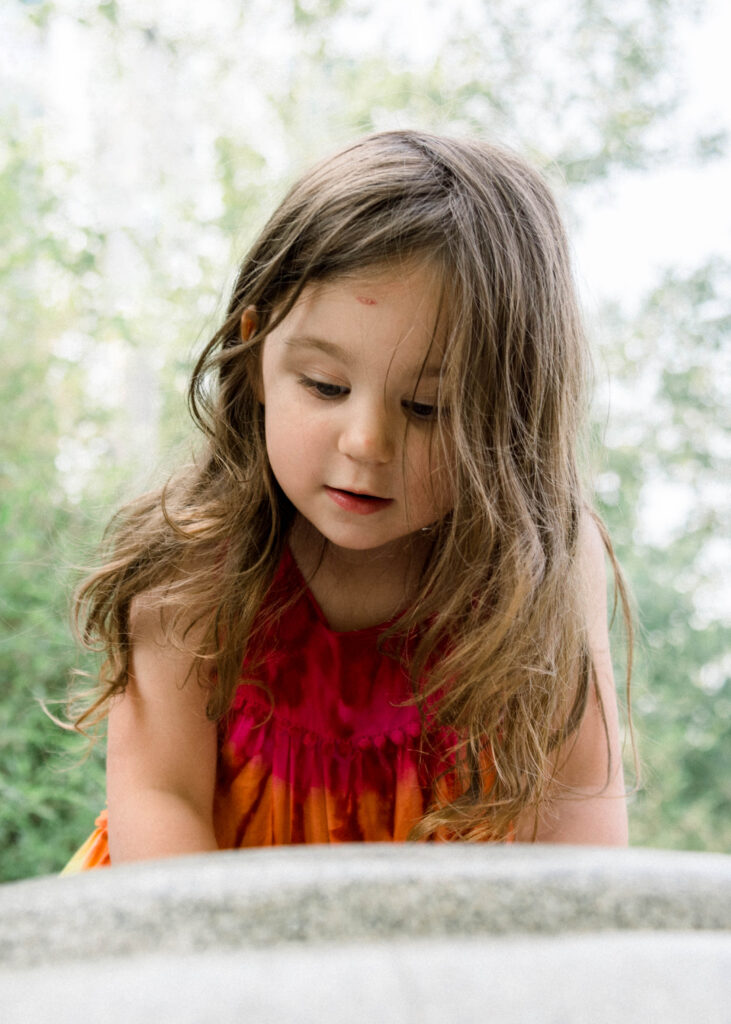
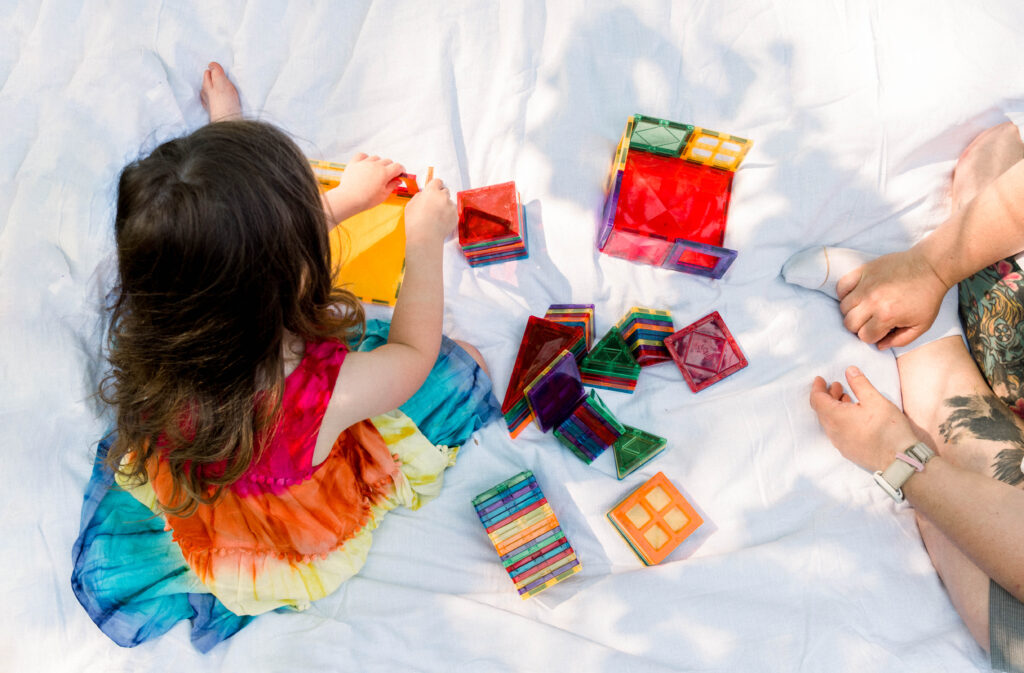
How do you to feel like your queerness or other identities impact how you think of family?
Aiden: We were just talking about how chosen family is such a integral thing for us. We’re currently dealing with some extended family tension. My family is all on the East coast, and my mom is probably the most present family member that we have. But chosen family has been so much more present for Minda in their life.
I always wanted intentional community. I always wanted a polycule, a whole bunch of people living in a co-created kibbutz. I tried to create it when I lived in New York. My partner at the time, we had talked about getting a flat that was bigger than we could afford, but that we would try to get some other people to join and create meals together. And we’re kinky, so we could totally have kinky weekends and have kinky parents together, and it would be great to have all of our intersectional identities mesh. Wouldn’t that be the dream?
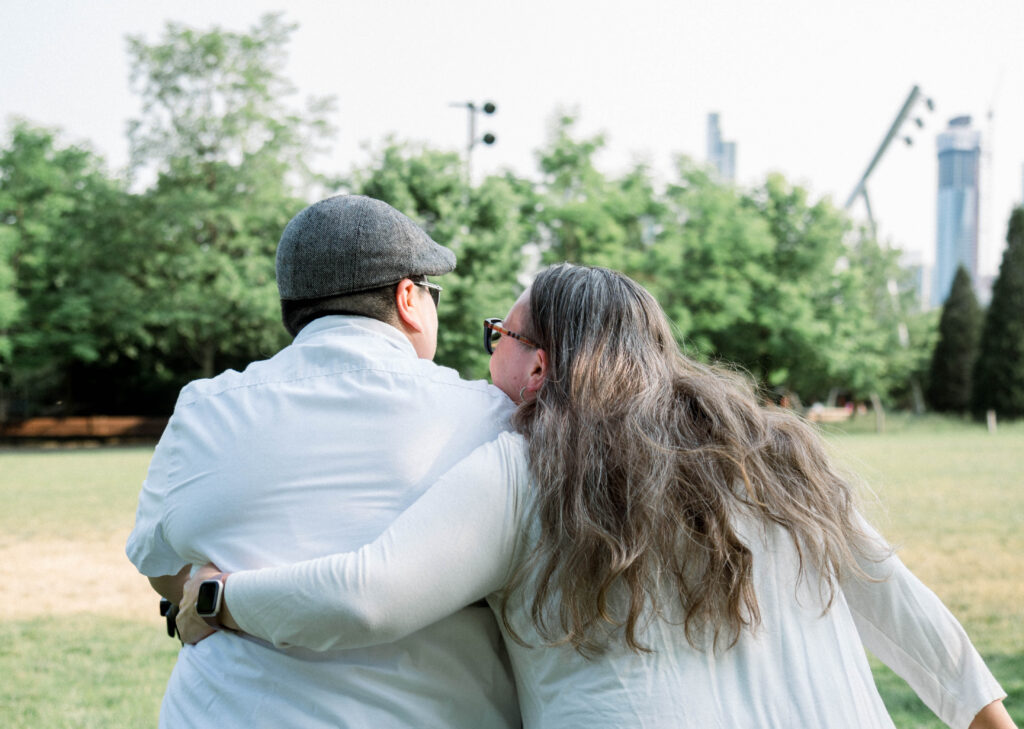
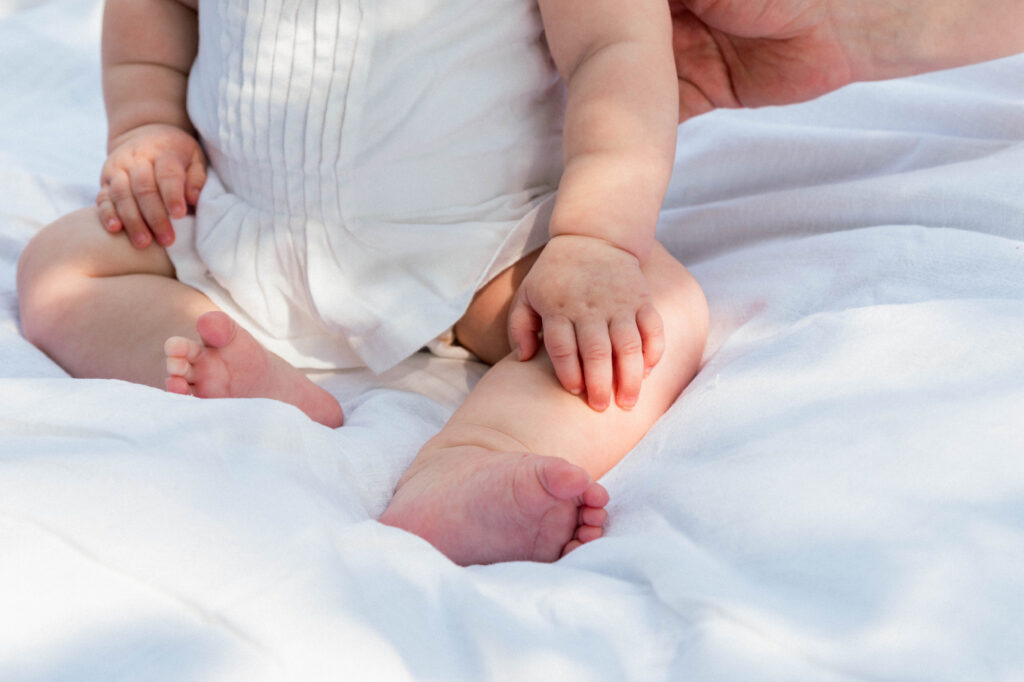
Minda: I was actually just talking to someone at work this morning, and she was talking about how important family is to her and and how it has to be important. And I think it should be, but it isn’t always that way.
I grew up with a family that didn’t accept me. And so I left home when I was 17 and never looked back. I didn’t have the option to go home. I didn’t have the option to be like, “Mom, Dad, can I borrow 20 bucks?” You know what I’m saying? I didn’t have that. So it was so community for me, and chosen family is how I like to call it, that took care of me.
And so I want to instill that same kind of family ethics here because I want our kids honestly to choose us. It’s also something that Aiden and I share and with our marriage, that we choose each other every day.
And you can have a connection with someone that’s platonic or of a different age that feels like a mentorship, and it still can feel like family. You’re at the bar and an older queen is giving you sage advice. It’s like – wow, here it is. We’re still looking out for the community. We’re still providing that support to each other that a parental unit would generally give.
I would like to manifest that general feeling of what family is, versus a specific type of family. Because honestly, you have to choose it because you can also not choose it. I chose to not be family with mine, with my mother specifically. Long term, because she wouldn’t accept me, but she definitely would not accept the children that did not fall out of my vagina. So unfortunately that means she doesn’t get to be in their lives. I only want people who want to be there. And now I understand that from other friends who had kids before me.
“I want our kids honestly to choose us. It’s also something that Aiden and I share and with our marriage, that we choose each other every day.“
Aiden: That’s one of my laments and uniquely queer family dynamic that, when our children aren’t related to the couple completely, when some DNA comes from outside of the unit, people just get weird. Family gets weird, blood family gets really weird. My mom super accepts that they’re my kids, but before Inara was born, my mom was like, “Well what would happen if you and Minda didn’t work out? What do you mean you’re gonna have them adopt or be a full custodial parent??” Because they are a full custodial parent, that’s what we’re doing.
Minda: These are my kids.
Aiden: We’re co-creating family. Just because Minda didn’t have the DNA to contribute doesn’t mean that they’re not contributing all of the daily living and the love and nurturing that’s involved in parenting. Minda’s an amazing co-parent. I could not have done this without Minda. And I say that on a almost daily basis.
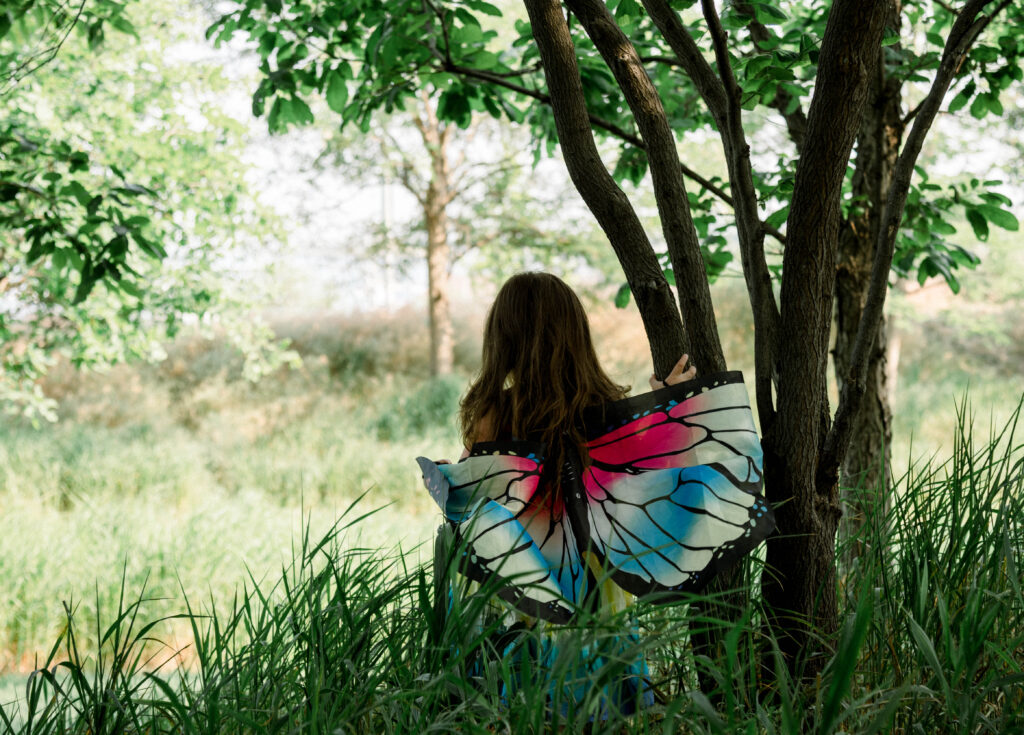

What do you dream of for your family or for queer families in general?
Aiden: I dream of a day when queer folk in general have acceptance, and it’s not a thing where you can’t be yourself in your family of origin. Then you don’t feel the compounded pressure to have to create new families – that you can continue your family. I’ve been both accepted and not accepted in my family. When I came out as trans – I’m non-binary, but I took T for three years and lived as a man – my favorite uncle told my mom to just walk away from me. I was heartbroken. I don’t understand that. Your faith should make you want to make your family tighter, not looser.
And as somebody who served queer community for four years at Howard Brown, I am all too familiar with how many people lose their family just because of who they are and how they identify (which really it is just who they are). It’s heartbreaking. But you take that experience into parenthood. I’m grateful that my mom has been supportive over the years, even as conditional and imperfect as it is. She has been there with me and helped me throughout the years. It’s not like I had to leave at 17 and had no family.
I would hope that that queer families could make their own, but keep their old, you know? It’s like the Girl Scout thing – make new friends, but keep the old.
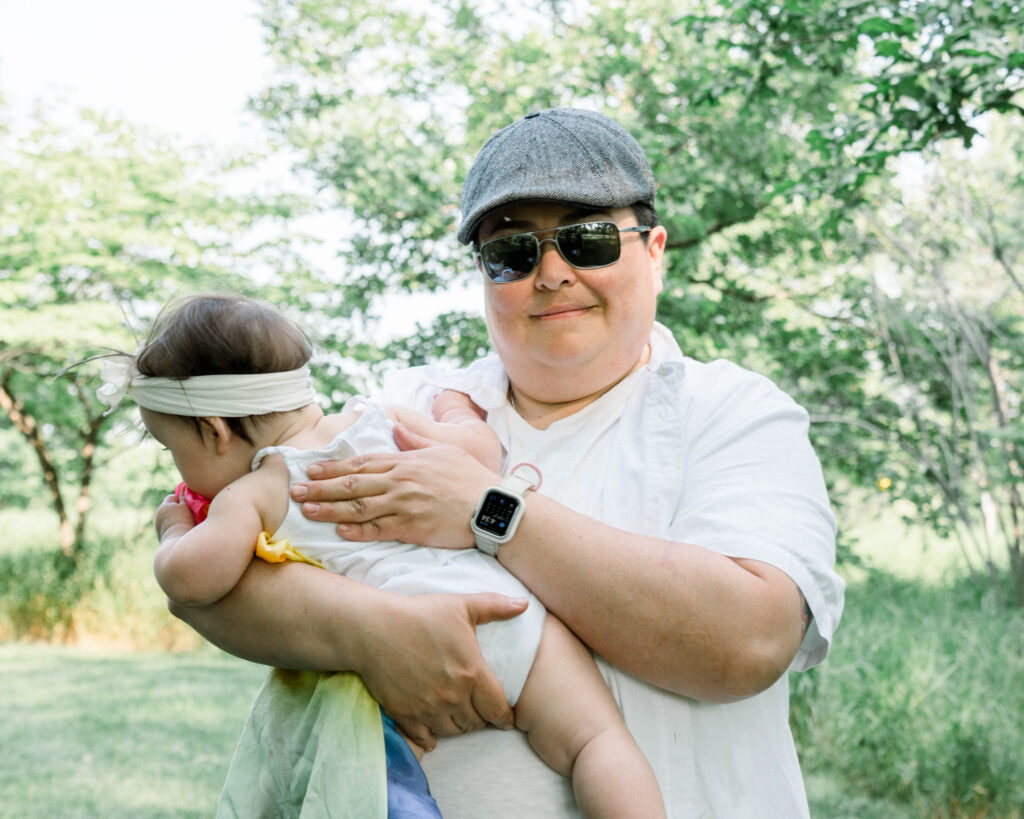
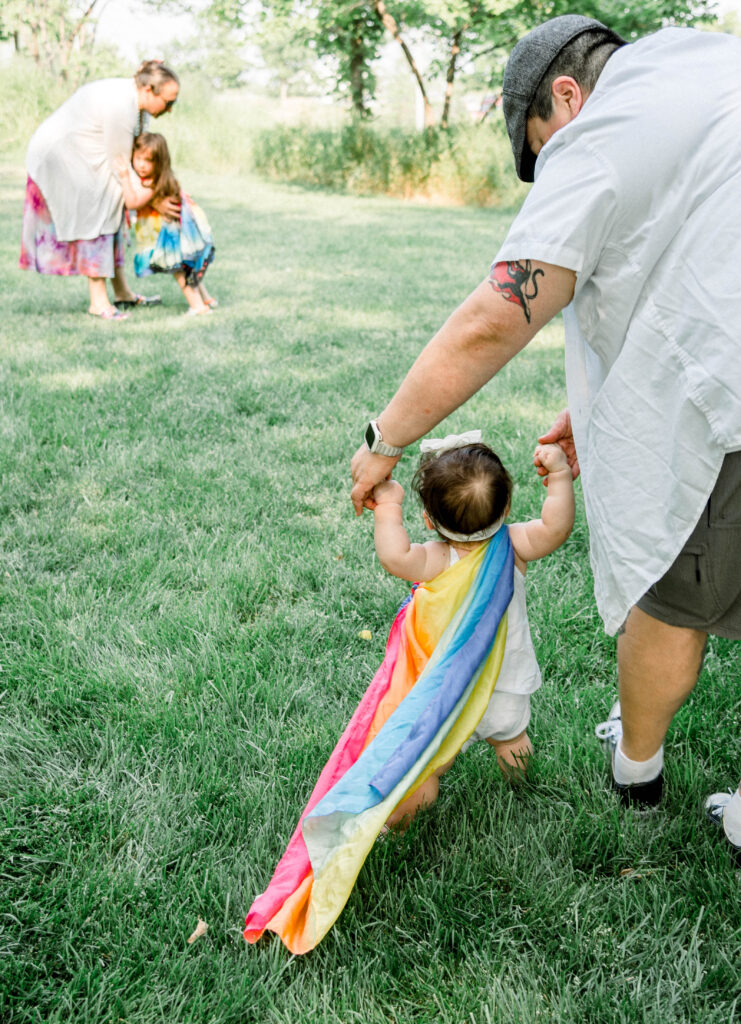
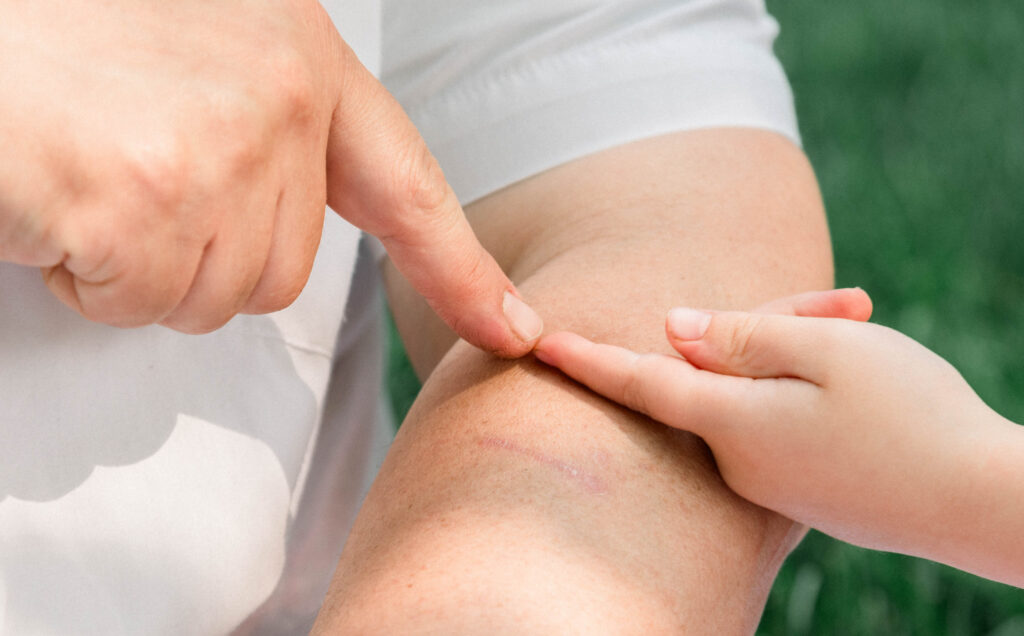
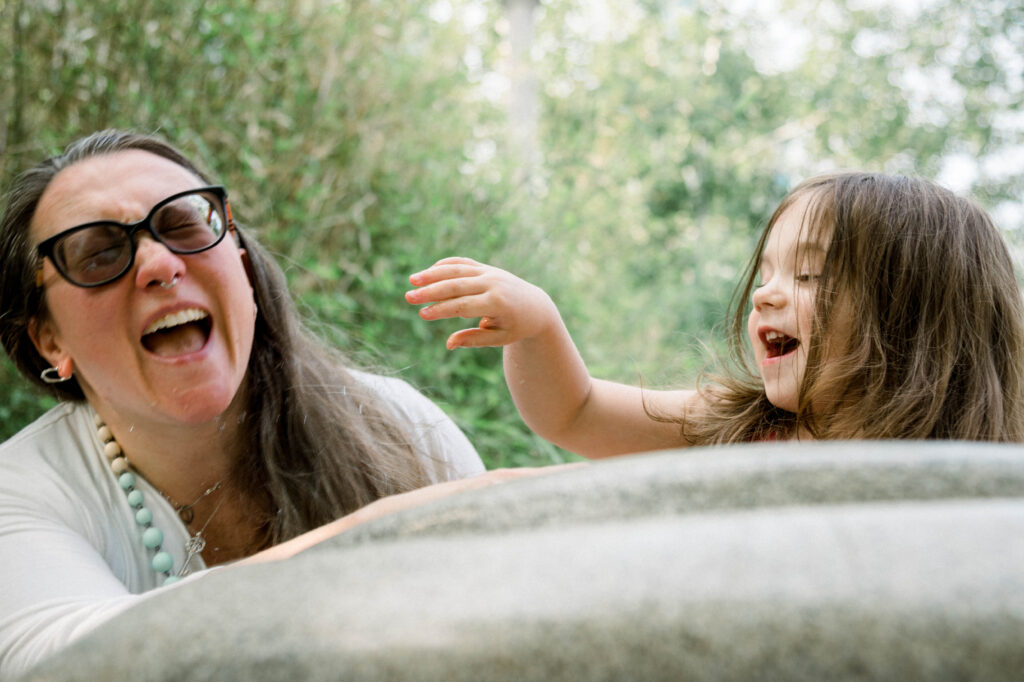
Is there anything else you’d like to share?
Minda: You’re never too old to start a family. A lot of times we are taught that we’re going to run out of time, but here we are. We started when we were in our forties. And yes, I’m tired, but you’re gonna be tired regardless, I don’t care who you are. There will be sleep deprivation. That’s part of the Coming of Age of parenthood.
It’s never too late. Don’t be afraid. It doesn’t have to be just you, even if you are a single parent. Your community can and will help. Sometimes they’re even better because you’re going to probably receive a lot of specialty, weird, niche, skills that you ain’t gonna find anywhere else in the suburb, honey. You know what I’m saying?
We have a Guncle in California and he’s always like, “I will come and watch your kids.” The community I’m talking about, you’re not gonna get that experience anywhere else.
It’s even more diversity. It’s good for us to have kids because – I’m not trying to say straight parents aren’t doing it right – but this gives kids more of an organic look at the world. How many times when we became of age were we sneaking outta the house to go to those queer spaces, with our hearts beating fast. Like, oh my gosh, this is it. And it should be that exciting, because it’s a coming of age of being able to finally find ourselves in this space.
Kids need to be able to find it, and it shouldn’t it be like you’re embarking on a journey alone. Wouldn’t it be so nice to have someone to show you through? You might like it and that’s okay. And if you don’t, you don’t have to.
“It’s never too late. Don’t be afraid. It doesn’t have to be just you, even if you are a single parent. Your community can and will help.“
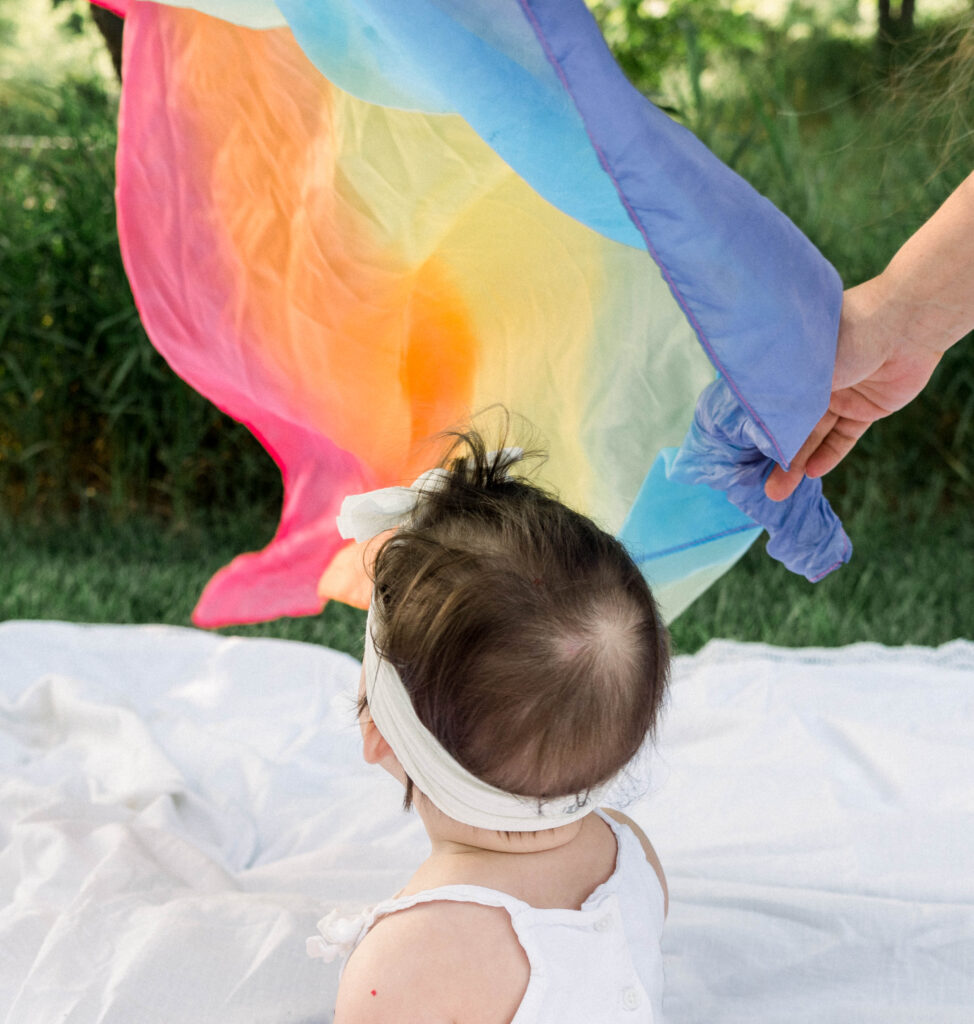
Aiden: Folks on parenting groups have nervousness around what it’s gonna be like where they live and whether or not they’ll be accepted. I’ve seen a lot of folks worry about whether the kids will love a parent they’re not genetically related to. If they’re not the gestational parent, will the kids love them as much? These kids love Minda.
There are days where I feel like they love Minda more than they love me. And I think we both feel that way. We flip-flop schedules for childcare and don’t use any outside caregivers. So I work three and a half days and then they work the other three and a half days, the opposite shift, and it’s wild. And the kids are super excited when they get to see each of us after the stretch. It makes me so happy to see how much they love Minda. Because I love Minda.
Minda: And if they don’t look like me, they’re gonna talk like me. And they already do. It’s best thing.
Aiden: For Inara when she was itty bitty, my besties back east were just like, “it’s Minnie Minda!”
Minda: It’s the cheeks.
Aiden: It’s the cheeks and the eyes. She really look just like Minda. They both do, and –
It’s so much fun.
